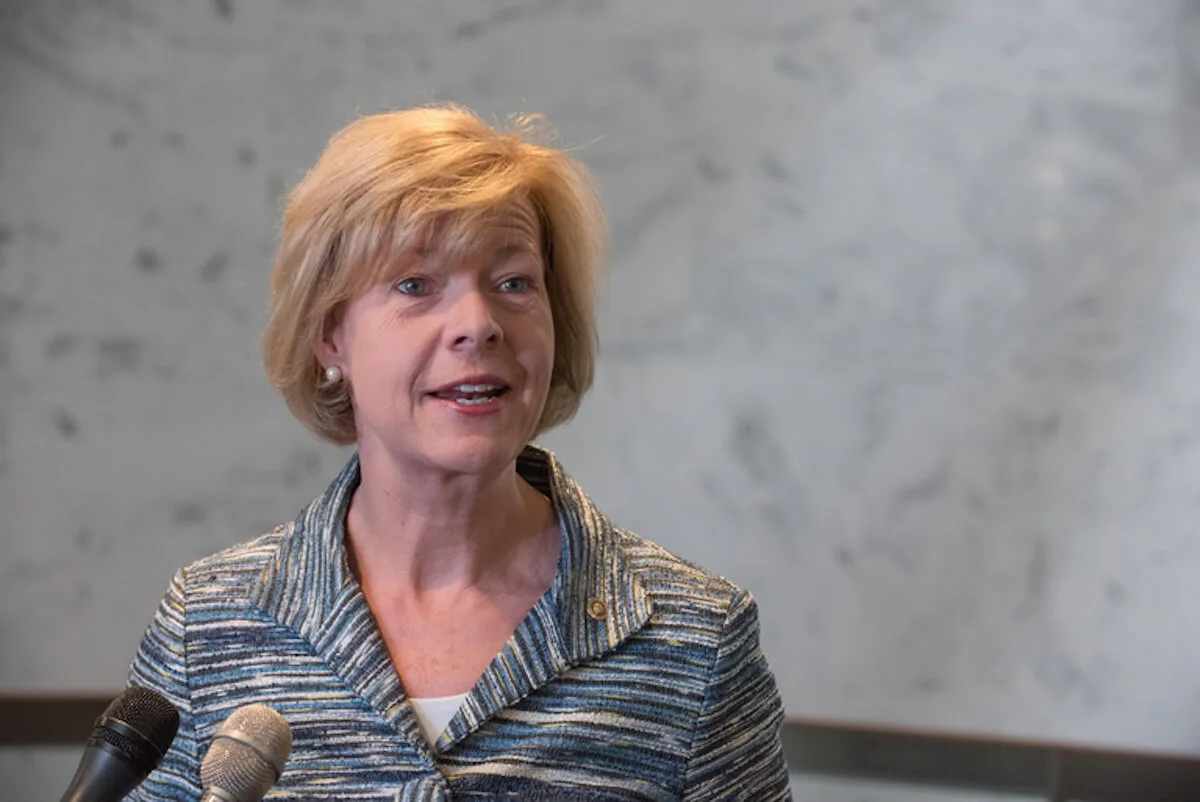
#image_title
Baldwin and Georgia’s two senators aim to create a “Medicaid look-alike” program that wouldn’t rely on lawmakers to accept money for Medicaid expansion.
After spending years watching Wisconsin Republicans repeatedly refuse to expand BadgerCare coverage for 91,000 low-income Wisconsinites, Sen. Tammy Baldwin (D-Wisconsin) on Monday introduced a bill that would bring health care to those individuals—whether Republicans approve or not.
“Since Republicans in the state Legislature have made it clear that they have no interest in allowing these very low-income workers to get on the BadgerCare program, we are creating a federal alternative,” Baldwin said in an interview.
That proposed alternative is a “Medicaid look-alike program” that would use money already set aside for Medicaid expansion to offer the same benefits that extension would bring without first requiring approval from state lawmakers. The expansion would extend health coverage to people who earn up to $17,300 per year, rather than the current eligibility cap of $12,800 per year.
RELATED: Wisconsin Could Expand Healthcare and Get $1.6 Billion From the Feds. GOP Says ‘No.’
Baldwin is cosponsoring the bill, dubbed the Medicaid Saves Lives Act, with Democratic Sens. Rev. Raphael Warnock and Jon Ossoff, both of Georgia. Wisconsin and Georgia are among just 12 states whose leaders have for a decade refused extra federal funding to expand Medicaid, known in Wisconsin as BadgerCare.
Proponents of BadgerCare expansion point out the potential benefits, such as improved health outcomes, increased economic output, and a higher level of employment. Expansion would also bridge the coverage gap, allowing low-income people to work more hours without the risk of losing their health coverage.
Further, the state would receive $1.6 billion in federal aid if it accepted the expansion.
“During a pandemic, this is not the sort of either compassion or fiscal policy that one would want … and it’s high time we do something about it,” Baldwin said of Republicans’ refusal to accept expansion.
About 160 organizations in Wisconsin and elsewhere have already endorsed the bill, according to a fact sheet from Baldwin’s office.
In Wisconsin, Republicans say they oppose expansion because they deny there is a coverage gap and because they do not want to expand welfare.
“We all want the same thing—to live healthy, happy lives in strong communities. But for tens of thousands of Wisconsinites, that’s not possible because they don’t have high quality, affordable health care,” Robert Kraig, executive director of Citizen Action of Wisconsin, said in a statement.
“Community Health Centers remain dedicated to ensuring that all Wisconsinites have access to high quality, affordable care that helps individuals reach their full health potential. A strong and sustainable Medicaid infrastructure is critical in advancing that goal,” Stephanie Harrison, executive director of the Wisconsin Primary Health Care Association, said in a statement.
The bill is likely to face an uphill battle in Congress, where Republicans could block it using the filibuster. Baldwin said she hopes it will get folded into Democrats’ newly announced “human infrastructure”-focused bill. Democrats plan to pass the bill through the budget reconciliation process requires a simply majority, meaning the bill could not be blocked with a filibuster.
“[I’m] very, very hopeful that we’ll be able to … open a door to so many who have been shut out of the healthcare system because of the Wisconsin Republican legislators’ failure to open that door for them,” Baldwin said.

Congress gifts higher premiums to more than 300,000 Wisconsinites
By Judith Ruiz-Branch Heading into the holidays, hundreds of thousands of Wisconsinites will be burdened with wondering if they will be...

OPINION: Without the ACA Premium Tax Credit, my family’s health coverage is at risk
Like so many other working families, I don’t know what my family would do without the Affordable Care Act (ACA) premium tax credits. As these...

How to support Wisconsin residents as SNAP funding disappears
As the nation remains in a government shutdown, food assistance programs in Wisconsin are feeling the effects. FoodShare, Wisconsin’s federal...

October is Breast Cancer Awareness Month. Here’s how you can help in Wisconsin
It's Breast Cancer Awareness Month. Here's how you can help fight for a cure throughout Wisconsin. October is globally recognized as Breast Cancer...




